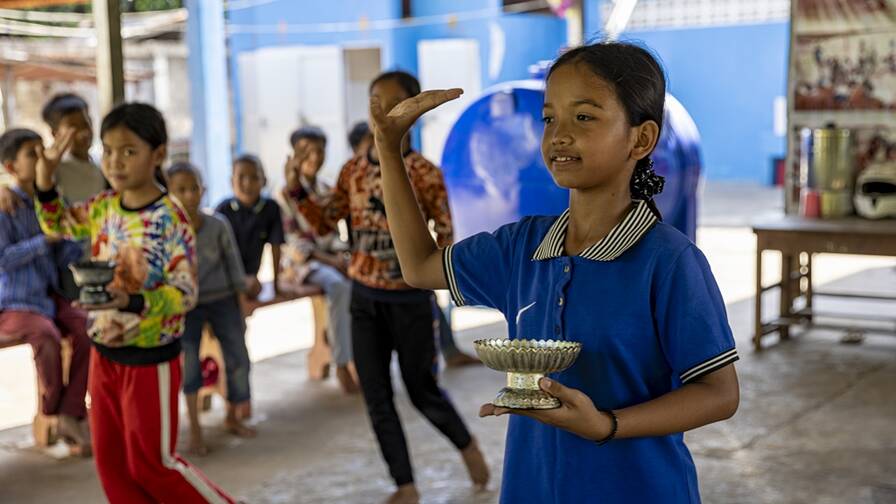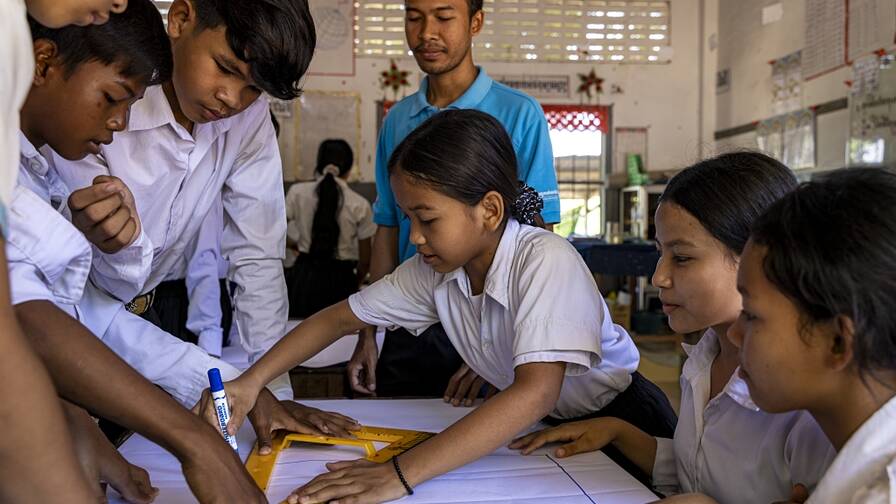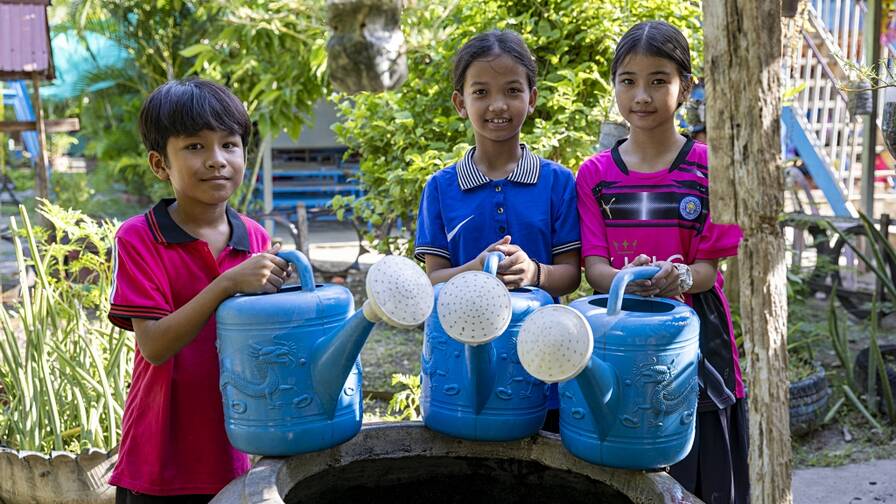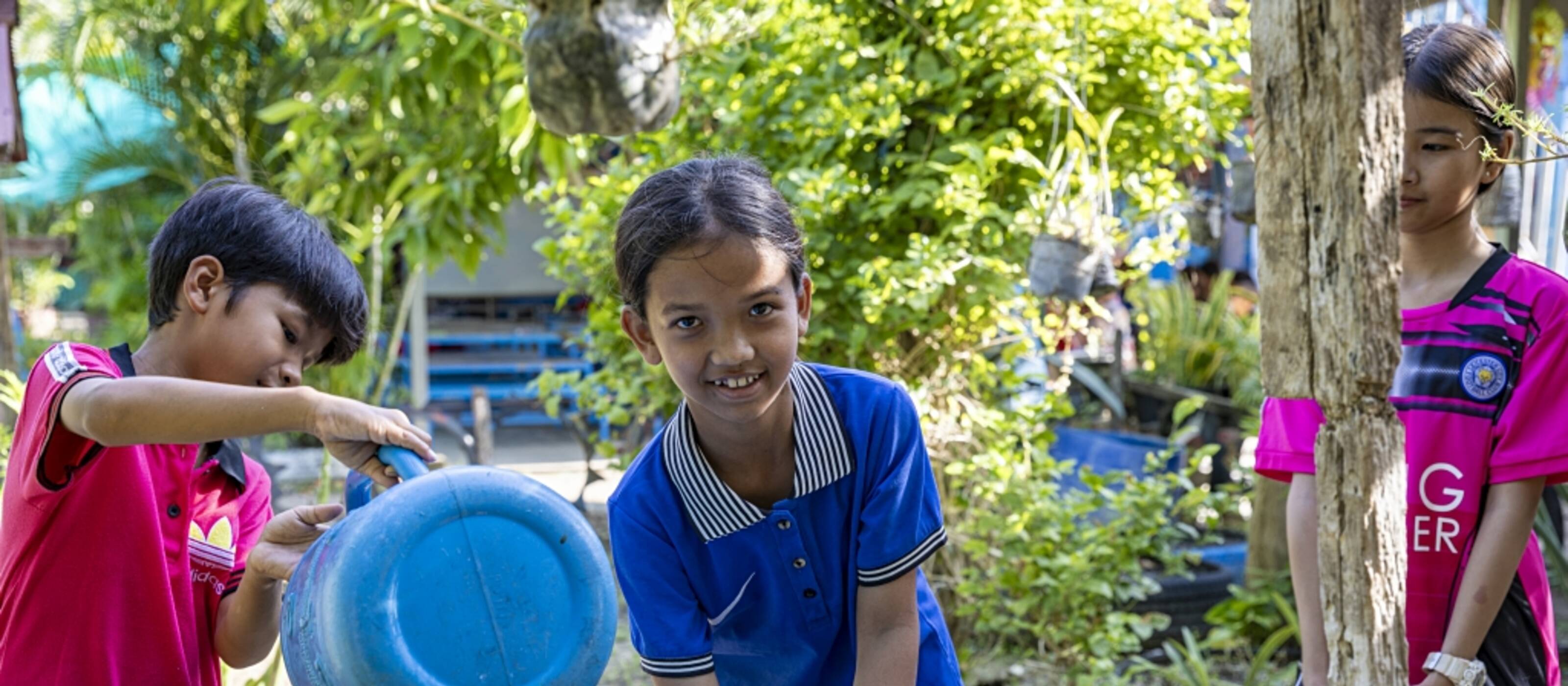

Visit to our partner Damnok Toek in Cambodia
This morning we travel to Poipet on the Thai border. There, our project partner Damnok Toek runs a shelter and school for children who have been victims of trafficking and are at risk. Girls and boys who have to work for a living also find shelter there.
I was here eight years ago and met the dedicated teachers and caregivers for the first time. I still remember the welcoming grounds and the staff. I am all the more pleased to visit again and to see them again.
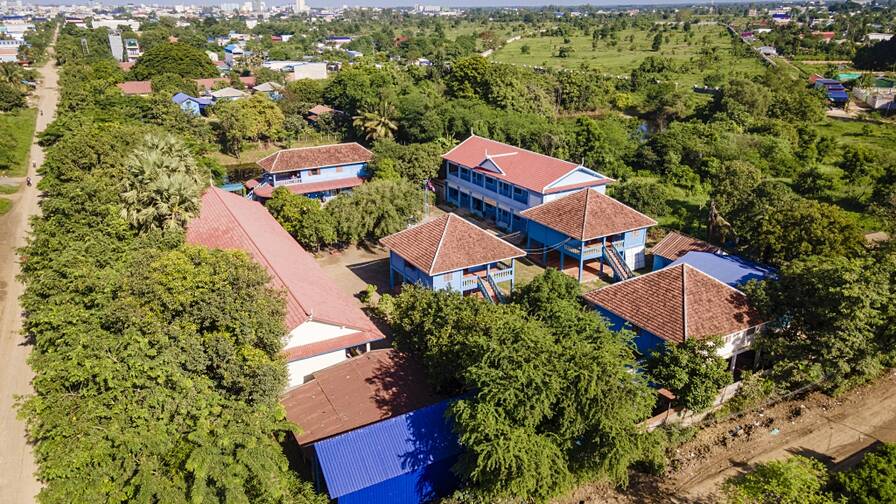
The children jump around as we park the car. It is shortly before 8.30 a.m. and classes are about to start. Neatly, they leave their rubber sandals by the stairs and enter the classroom barefoot. 10-year-old Mliss also scurries in and sits down on one of the wooden benches.
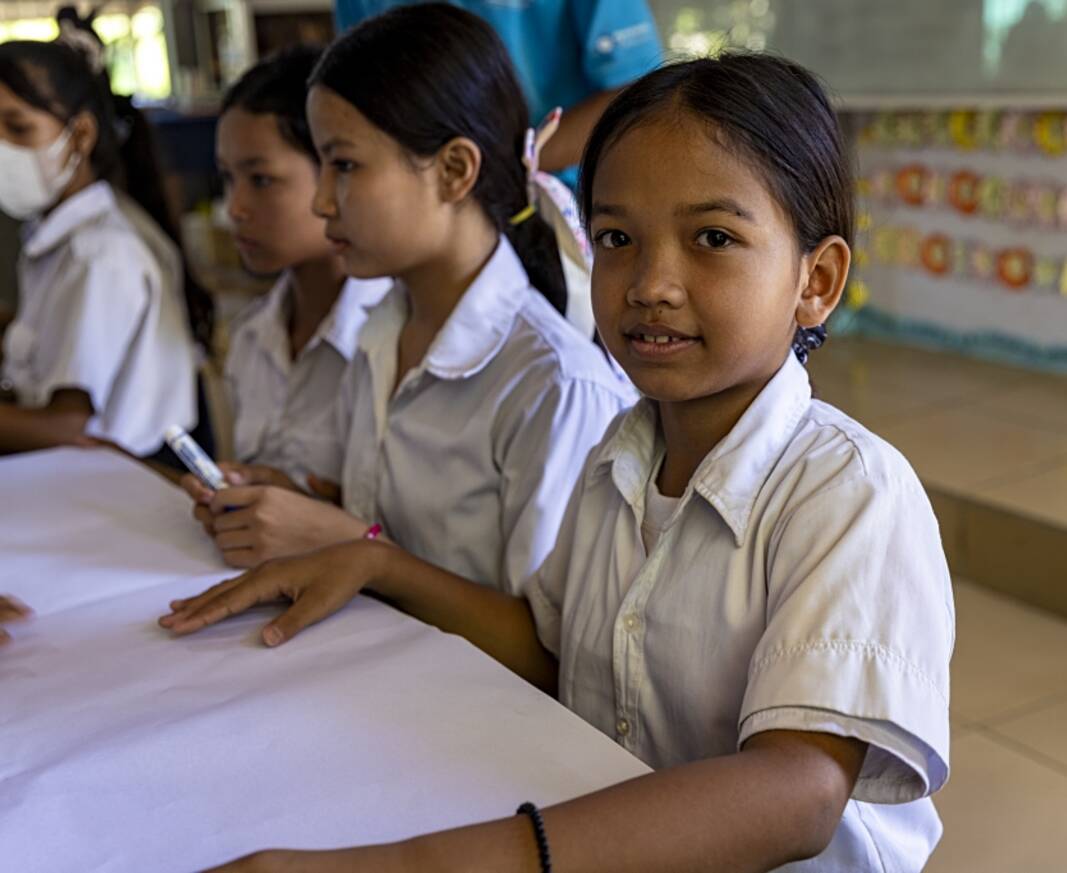
Mliss had a difficult start in life
Mliss (10) has been living in the Damnok Toek shelter for 4 years and is one of the most dedicated students. Her start in life would not have suggested that.
The parents of the young girl could not find an income in Cambodia and went to Thailand with their daughter. The first time was when she was four years old. As harvest workers, they worked all day in the fields - taking little Mliss with them. The girl never went to school. After the harvest season, the family usually returned to Cambodia. The marriage was not going well and the parents eventually separated. Mliss stayed with her father. The mother disappeared and Mliss has had no contact with her since then.
Mliss finds refuge alone and scared
When father and daughter once again crossed the border into Thailand, they were picked up by the local police. They wanted to enter the country without valid papers. Illegal migration, however, is a punishable offence and so they put the father in jail. With only the clothes she was wearing, the then 6-year-old Mliss was sent back to Cambodia alone.
Our project partner Damnok Toek works with the government agencies that place unaccompanied returning children. And so Mliss came into the care of our project partner, where she remains to this day.
In a protected environment, she can simply be a child. Through psychological and medical care, encouraging leisure activities and a lot of attention from the caregivers, Mliss is also slowly coming to terms with what she has experienced and catching up on the missing school material.
Mliss chooses to study
Damnok Toek always tries to make contact with the extended families of the children in care and eventually integrate the children back into the family. Unfortunately, in Mliss' case they could not find anyone, which is why she has been living in the centre for years.
Her father did look for Mliss when he was released from prison. But he cannot offer her a stable environment and still migrates regularly to Thailand for work. He gave his daughter the choice to come with him. Mliss decided to go to school after all and stayed with Damnok Toek.
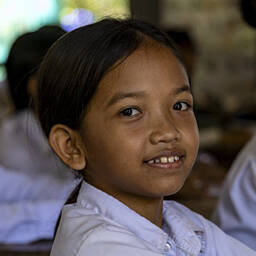
«I am happy and safe here. I can go to school. That is very important to me. I want to be a teacher myself when I grow up.»Mliss
Damnok Toek changes lives
In the afternoon, I learn what care in the shelter and school attendance means for children and how this can set the course for their lives. I am sitting at the entrance and going through my notes. Suddenly, a young man is standing in front of the gate, beaming from cheek to cheek. Something about his charisma and body language arouses my curiosity.
He is talking to a teacher and they are hugging each other. Pointing to the young man, I ask the guard in English who he is. In Khmer, the local language, and with hands and feet, he explains to me that it is a former student.
Serey Rumny (24) lived in the Damnok Toek shelter from 2006-2009. His family was very poor. The single mother went to Thailand to earn money. She wanted to bring her son home and asked a neighbour if he could take him. During the check at the border crossing, the officials realised that the two were not related and stopped them. Rumny was brought back to Cambodia alone and thus came to the shelter.
Rumny is an example of how lives can change thanks to our help
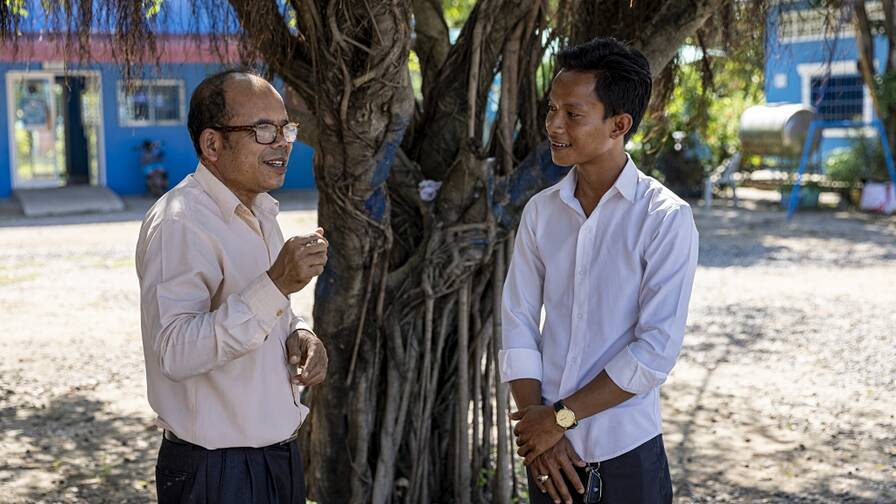
The time at Damnok Toek shaped Rumny's life. He discovered his joy of learning. He tells me that he continued to go to school diligently even after he left the organisation and went back to live with his mother. Rumny has now been a teacher at a public school for 5 years.
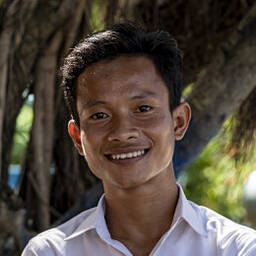
«I have never forgotten the teachers and the school. They changed my life. I am so grateful,»Serey Rumny
Rumny tells me, naming the teachers back then. Then he chats and laughs with the current director of the institution, Long Sanrithy, who was one of his supervisors back then.
Further information
Header image: Mliss and her friends do their daily chores and water the plants around the shelter. © Nicolas Honoré/Caritas Switzerland
